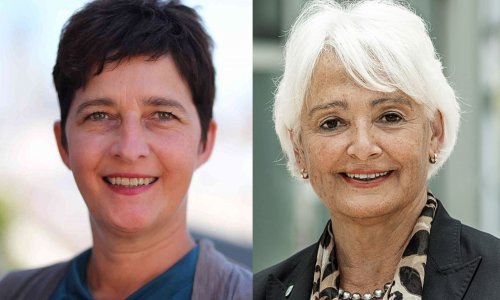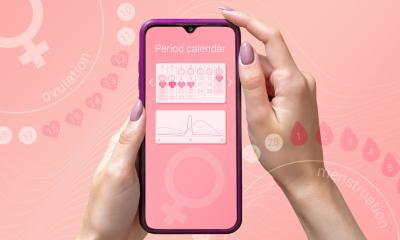Photo: Mark Nicholls
Article • Digital support for the women’s health agenda
Bridging the gender health gap
Digital technology is being harnessed to support the women’s health agenda in the UK and address issues of equity and access to healthcare through a range of innovative initiatives. Delegates to the HETT (Healthcare Excellence Through Technology) North conference in Manchester heard how digital technology is being leveraged to support women’s health Hubs – which tailor care to meet women’s needs while helping reduce pressure on secondary care – and midwifery services.
By Mark Nicholls
The keynote session was chaired by Karen Kirkham, partner and Chief Medical Officer from the professional services network Deloitte, who opened by highlighting the definition of health equity as a ‘fair and just opportunity of everyone to achieve their full health potential’ that includes social, emotional, physical and non-medical social determinants of health.
A former GP with a strong interest in women’s health, Kirkham also pointed to a recent Deloitte report,1 which highlighted four tenets for improving health:
- helping organisations understand what health equity is;
- how to break the barriers to improve health equity, particularly through data;
- how to embed health equity in every organisation with use of data, analytics, digital inclusion and workforce training, and;
- how to close the health equity gap.
What women want (in healthcare)
Following up, Claire Riley, Chief Corporate Services Officer for the NHS North East and North Cumbria Integrated Care Board (ICB), detailed how her region in the north of England had invested in women’s health hubs and surveyed 5000 women on what their priorities are. ‘We can look at the data and also look at what services women are accessing,’ she said, ‘but we don’t always ask women what they want. We wanted to make sure that the patient voice was at the heart of our plans going forward. If we are going to make a sustained difference to how women access services and the care they receive, we need to start with what they want.’
The expert pointed out the importance of acquiring data on deprivation, ethnicity, and economic activity was pivotal in offering a holistic approach to women’s care. Women’s health hubs – which were established under the Women’s Health Strategy for England – are having a major impact by offering appointments covering 3-5 issues, rather than one appointment for one area of care, she added.
‘We are starting to see real benefits of that joined up care focused on women’s health to the point where we are now extending some of those services in our hubs to include diagnostics.’
Unmet demand for mental health support
With the majority of women’s health funding still going into a hospital environment, Riley added that data can identify where the investment needs to be spent in the community. She said that data can identify gaps in service and where improvements can be made by assessing health trends alongside patient feedback.
Links to the NHS app enable medics to provide more personalized treatment pathways. However, the expert added that those who are not yet able to access the technology should be supported as ‘any technology that is activating individuals to take control of their own health and wellbeing has to be a positive.’ Still, she remained concerned that while tech companies are heavily promoting solutions in areas such as fertility or menopause, a similar focus on mental health is absent. ‘But that is an area that women are accessing services for,’ she said, explaining that anxiety and depression are among the conditions associated with the most GP consultations, only surpassed by urinary tract infections.
Help patients take ownership of their condition
The audience also heard from Misbah Mahmood, Deputy Chief Midwifery Information officer at Leeds Teaching Hospital NHS Trust, who outlined how the electronic patient record (EPR) has standardised collection of data and led to the creation of a health inequalities dashboard. In an example, she said: ‘The platform tells us that 50% of women who give birth at Leeds are from a deprived background and that 10% are gestational diabetic.’ That data, she continued, enabled her team to offer relevant and timely interventions and support.
Recommended article

News • Underdiagnosis of gestational condition
Over half of pregnant women unaware of diabetes, study suggests
More than half of pregnant women in the UK with gestational diabetes are unaware of their condition due to insufficient diagnostics, a study suggests. This could lead to unneccessary complications.
Mahmood explained how technology had been harnessed in maternity services in Leeds by having online notes on a web-based system that women can access as well as health information. In areas such as blood pressure monitoring or diabetes, she said it helped women understand and take ownership of their condition and make lifestyle changes. The number of women accessing online notes is monitored and where gaps are identified, teams can reach out to communities.
Mahmood said the introduction of online self-referral to maternity services had enabled information capture and the ability to identify and see women with the greater needs sooner.
Generational shift
Tulsi Patel, Director of Product at women's health technology company Hertility, emphasized that data forms the cornerstone of their operations. She highlighted that 600,000 women have completed the company's online health assessments, which generate GP-ready reports on women's health conditions, facilitating expedited referrals when necessary. Noting a ‘generational shift’ in technology and wearables, she pointed out a trend towards higher prioritization of healthcare in general and women engaging ‘sooner in their healthcare journey’. Patel emphasized the importance of user-friendliness of health technology and emphasized the role of consumer input to achieve this.
The panel also expressed concern about the levels of inappropriate and inaccurate information being offered on social media channels and the need to support families that cannot afford technology to benefit their health.
Profiles:
Karen Kirkham is a partner and the Chief Medical Officer at Deloitte and a member of the HETT Steering Committee. She previously worked as a GP in south of England with an interest in women’s health. Her areas of interest are healthcare operations and consultancy.
Claire Riley is Chief Corporate Services Officer for North East and North Cumbria Integrated Care Board (ICB) and Executive Lead for Women’s Health, Research and Innovation. She was previously the Executive Director of Communications and Corporate Affairs at Northumbria Healthcare NHS Foundation Trust.
Misbah Mahmood is Deputy Chief Midwifery Information officer at Leeds Teaching Hospital NHS Trust, and has been a qualified midwife for 10 years. She has led several projects across maternity services, including an end-to-end electronic patient record and secure online notes portal. She is a member of the Digital Midwives Expert Reference Group.
Tulsi Patel is Director of Product at Hertility where she leads the Product Management and Design operation, which is spearheading the future of reproductive healthcare by pioneering diagnostic testing, and providing data-driven and advanced insights into all aspects of women's health.
- Stephanie Delanbanque, Maria João Cruz, Elizabeth Hampson: Health equity in Europe: A collective responsibility to act; blogs.deloitte.co.uk; accessed April 7, 2025
20.08.2025










